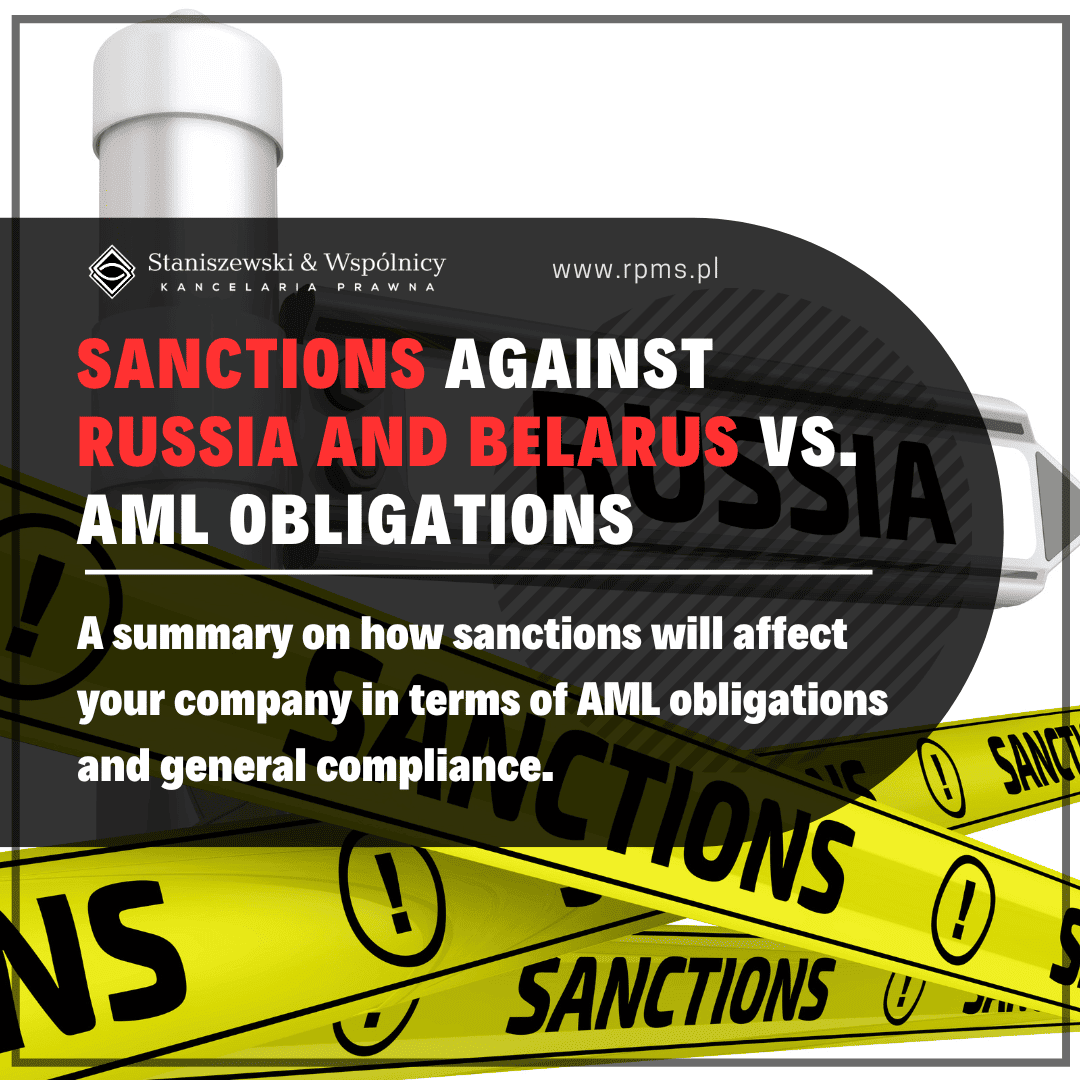Table of contents
Transport and logistics represent one of the most crucial sectors of the economy. Without them, there can be no talk of regular deliveries of goods, supplying stores, and factories. Transporting goods, especially on an international scale, always involves the risk of damage. Which regulations govern transportation services, and what liability framework has the legislator established? Let’s delve into the legal aspects of carrier liability.
In What Act is the Carrier’s Liability Regulated?

The rules regarding liability for transported goods are governed by two legal acts:
- The Act of November 15, 1984, on Transport Law (hereinafter referred to as ‘Transport Law’).
- The Convention on the Contract for the International Carriage of Goods by Road, dated May 19, 1956 (hereinafter referred to as the ‘CMR Convention’).
Domestic regulations apply when both the place of goods acceptance and the place of their delivery are located within the territory of the Republic of Poland. The Act applies to the carriage of persons and goods performed for remuneration by carriers authorized to do so (excluding air, sea, and horse transport).
On the other hand, the international convention pertains to cross-border transport. In accordance with Article 1 section 1 of the CMR Convention, its provisions apply to “every contract for the carriage of goods by road in return for payment, irrespective of the place of residence and the nationality of the parties, if the place of taking over of the goods and the place designated for delivery thereof, as specified in the contract, are situated in two different countries.
In practice, the CMR Convention is applied, for instance, to the transportation of goods on popular routes such as, e.g., Poland-Germany or Poland-Belgium. It is crucial that at least one party to the carriage contract comes from a country which ratified the Convention.
How to Interpret the Concept of Damage and the Scope of Liability?
In the context of the transportation of goods, the concept of damage is understood as a quantitative or qualitative loss that diminishes the value of the goods or renders them unusable. This can include:
- Loss of goods.
- Damage to goods.
- Partial loss of goods.
Additionally, both national and international regulations supplement the concept of damage with the notion of transport delay.
Article 65 section 1 of the Transport Law stipulates that damage must occur between the acceptance of the shipment for transportation and its delivery. Delay in delivery is also considered a form of damage.
On the other hand, the CMR Convention, in Article 17, outlines the carrier’s liability for total or partial loss of goods or their damage that occurs between the acceptance of the goods and their delivery, as well as for delivery delays.
At first glance, it is evident that the prerequisites for liability under both legal acts are similar. To establish carrier liability, the following conditions must be met simultaneously:
- Occurrence of an event justifying liability (e.g., a delay in delivering the goods).
- Damage (e.g., partial spoilage of transported food).
- A causal relationship between the event and the damage.

Limitation of Carrier Liability in Polish Domestic Law

While the regulations may initially appear to impose strict liability based on risk, both legal acts include numerous conditions that, if met, exempt the carrier from liability.
Article 65 section 2 of the Transport Law introduces the principle that the carrier is not liable if:
- the damage occurs due to reasons attributable to the sender or receiver, not caused by the carrier’s fault,
- due to the nature of the goods,
- as a result of force majeure.
In each of these cases, the burden of proof rests on the carrier, who must establish the opposite circumstance. Regardless of this, liability for loss, partial loss, or damage (but not for delays) does not arise if the carrier can demonstrate that the damage occurred due to one of the following reasons:
- The goods were consigned under a name that did not accurately, accurately, or sufficiently describe items excluded from transport or accepted for transport under special conditions (e.g., pharmaceuticals or biotechnological materials).
- The packaging was inadequate, insufficient, or faulty for goods susceptible to damage due to their natural properties (e.g., improper packaging of glass products).
- The goods were particularly susceptible to damage due to defects or natural characteristics (e.g., transportation of perishable fruits).
- Loading, stowage, or unloading of the goods by the sender or receiver.
- Transport of shipments that, according to the agreement or regulations, should have been supervised, if the damage resulted from causes that the supervisor should have prevented (e.g., radioactive materials, weapons, ammunition).
Establishing one of these conditions triggers a statutory presumption of its truthfulness, and the burden of presenting counter-evidence falls on the other party to the dispute.
According to Article 70 of the Transport Law, the carrier is also not liable for damages resulting from failure to perform or improper execution of an order to change the transport contract unless these orders originated from authorized persons (the sender or the receiver of the goods). Compensation in this situation is calculated in accordance with the principle outlined in Article 80 of the Transport Law.
What About Quantity Shortages?
Transport Law exempts the carrier from liability for quantity shortages (changes in weight or quantity) if the carrier:
- Did not verify these parameters when not obliged to do so.
- Delivered the goods in an undamaged condition unless the authorized party can prove that the damage occurred between the acceptance of the shipment for transport and its delivery. However, this requires refuting the statutory presumption outlined in Article 6 section 2 of the Transport Law.
Of course, it is easy to identify materials that naturally lose weight due to their physicochemical properties. These may include ores of metals, certain elements (such as sulfur), as well as spirits, solid fuels, or cement. In such cases, the carrier’s liability is limited to the extent of the loss exceeding the accepted norms, unless the damage results from causes that do not warrant recourse to the regulations (e.g. theft).
The issue lies in the fact that the Transport Law allows for the possibility of issuing regulations specifying these norms. The applicable regulation by the Minister of Transport, Navigation, and Communications, dated January 16, 1989, concerning national norms for natural losses of certain articles transported by road (as well as its railway transport counterpart) has been repealed. Currently, there are no executive regulations in this regard.
It is also worth noting that in situations where the damage occurred only partially due to the carrier’s fault, their liability is limited solely to that scope.

Claims Against a Carrier in Poland

Transport Law provisions also provide extensive protection for carriers regarding the possibility of submitting claims. It is important to pay particular attention to Article 76 of the law, which states that the acceptance of a shipment by an authorized party results in the extinguishment of claims for loss or damage unless:
- The damage was officially recorded before the acceptance of the shipment by the authorized party or was waived due to the carrier’s fault.
- The loss or damage resulted from intentional fault or gross negligence on the part of the carrier.
- The authorized party discovered damage not externally visible after the acceptance of the shipment, and within 7 days, they requested an assessment of its condition and proved that the damage occurred between the acceptance of the shipment for transport and its delivery.
Carriers are also protected by a very short statute of limitations for claims, which is one year or two months in the case of delivery delays.
Monetary Limits of Carrier Liability in Poland
In addition to the aforementioned limitation of carrier liability, the domestic legislator has also introduced limits regarding the maximum amount of compensation sought. According to Article 80 of the Transport Law, in the case of loss or loss of goods, it amounts to the equivalent of:
- The price indicated on the supplier’s or seller’s invoice.
- The price derived from the tariff in force on the day of shipment.
- Goods of the same kind and type at the place and time of shipment.
In the case of shipments with a declared value, the compensation is limited to that value (or a portion thereof in the case of loss), unless the carrier can prove that the value of the goods was lower. If there is a loss in the goods, the compensation is limited to the percentage of the loss in the total value of the goods.
In addition to compensation, the carrier is also obliged to reimburse the transport charge and other costs associated with the shipment (in whole or in part, depending on the damage). If damage results from intentional fault or gross negligence of the carrier, statutory limits on the amount of compensation do not apply.

Liability for the Carriage of Goods under the CMR Convention

International conventions primarily impose an obligation on carriers to verify:
- The data in the consignment note pertains to the quantity, characteristics, and numbers of goods.
- The visible condition of the goods and their packaging.
- The quantity of goods on board (upon request by the shipper and subject to reimbursement of expenses incurred for this purpose).
Of course, this does not require a detailed and thorough inspection but rather a preliminary check to ensure that the goods or packaging do not show signs of damage and are properly packed for the duration of the transport. Although there is no uniform case law on the degree of diligence expected from carriers, it is generally recognized that the level of care expected should be that of a professional.
This is particularly relevant when transporting sensitive goods. A carrier must demonstrate a higher degree of care if they specialize in transporting a particular material. This may involve checking:
- The integrity and stability of containers with concentrated acids.
- The temperature of ice or dry ice when transporting biochemical reagents.
- The pH of a chemical solution using a pH meter.
If the carrier does not have the means to perform such checks, they should record relevant reservations in the consignment note. This is crucial because in the absence of an agreement, the consignment note serves as evidence of the contract’s conclusion, its terms, and the acceptance of the goods by the carrier.
In the absence of reservations, according to Article 9 of the CMR Convention, it is presumed that the goods and their packaging were in good condition, and the quantity, characteristics, and numbers of the goods were consistent with those stated in the consignment note.
Limitation of Carrier Liability in International Law
The carrier’s situation under the CMR Convention differs slightly from that under domestic law. According to Article 17 section 2, the carrier is exempt from liability if the loss, damage, or delay is caused by:
- The fault of the authorized person.
- An order issued by the authorized person.
- Inherent defect in the goods.
- Force majeure
According to Article 19 of the CMR Convention, delay in the carriage of goods occurs when they are not delivered on the agreed-upon time or, in the absence of a contractual deadline, when the duration of the transport exceeds what could be expected from a diligent carrier. Under Article 17 section 4 of the CMR Convention, the carrier is also not liable when the loss or damage to the goods results from:
- The use of open and uncovered vehicles if such an obligation is noted in the consignment note.
- Lack of or faulty packaging of goods that are consequently exposed to loss or damage.
- Handling, loading, stowage, or unloading of goods by the shipper or consignee or persons acting on their behalf.
- The natural properties of the goods, which may lead to spontaneous loss or damage (e.g., rust, leakage, drying, spoilage).
- Inadequate or incorrect labeling of shipments.
- The carriage of live animals.
It is worth noting that when the carrier is only liable for certain causes of damage, they are only responsible within that scope. However, they cannot invoke defects in the vehicle used for transport or the fault of the person from whom they rented the vehicle or their employees.
While the burden of proving the existence of a cause excluding liability falls on the carrier, if they establish such a reason, there is a presumption of its validity. It is only the authorized person who can provide counter-evidence. In the event of damage to live animals or goods requiring special transport conditions, the carrier must demonstrate that they have taken measures appropriate to the circumstances or complied with the instructions given to them.

Claiming Compensation Under the CMR Convention

Effective claims against the carrier require the consignee of the goods to exercise due diligence. The consignee should:
- Inspect the condition of the goods
- Report any discrepancies to the carrier (not the shipper!)
- Preserve evidence of the occurrence of damage, its extent, and the circumstances of its occurrence
Relevant notifications should be made within 7 days from the date of delivery (in the case of loss or damage) or within 21 days from the date of delivery (in the case of delay). Otherwise, it is presumed that the consignee received the goods in accordance with the contract.
The seven-day deadline does not apply if the goods have been inspected by the consignee and the carrier unless the defect was hidden, making its earlier detection impossible.
Compensation Under International Law
The amount of compensation for damaged goods under the CMR Convention is calculated based on the value of the goods at the place and time of their acceptance for transport (according to Article 23 section 1 of the CMR Convention). The value of the goods can be determined based on:
- Market prices
- Current market value
- Usual value of goods of the same kind and quality
In principle, compensation cannot exceed 8.33 units of account per kilogram of the gross weight missing unless the value of the goods or a special interest in their delivery has been declared. The unit of account is a special drawing right converted into the national currency at the time of a court dispute.
In addition to compensation, carriage costs, customs duties, and other charges incurred in connection with the transport service are subject to reimbursement.
In the case of a reduction in the value of the shipment, compensation should correspond to that decrease in value. If the decrease in value is significant enough that the goods are no longer suitable for use, compensation is paid as if the shipment were lost.

Protecting the Carrier’s Interests

Protecting the carrier’s interests and ensuring clear terms of cooperation primarily involve a well-constructed carriage contract. In the contract, it is essential to regulate issues such as:
- Permissible levels of natural losses
- The entity responsible for loading and unloading the goods
- Cargo securing measures
- Supervision of goods of special purpose
- Accurate determination of the initial weight and quantity of the transported goods
It is also important to ensure that relevant information is included in the consignment note. Disputes related to transport law should be handled on a case-by-case basis. Although there are few regulations governing this sector, they can be complex, and national legal structures sometimes replace solutions developed at the international level.
In many cases, it is advisable to seek the services of a law firm, which can not only draft or review contracts but can also provide representation for the carrier, shipper, or consignee in court when necessary.














